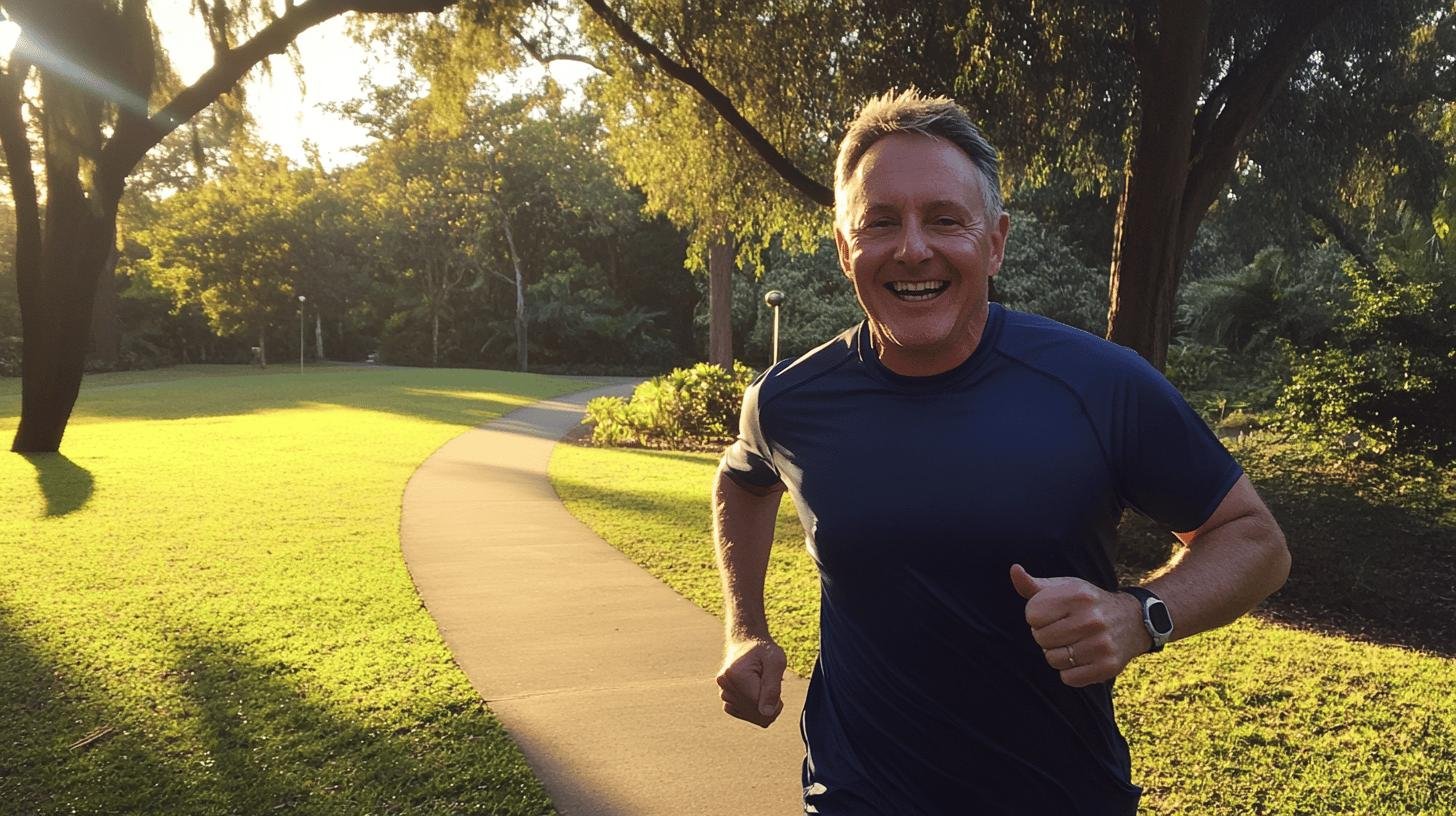TL;DR:
- Nutrition and lifestyle coaching promotes personalized health through dietary and lifestyle guidance.
- Benefits include improved dietary habits, enhanced physical health, stress management, accountability, and long-term behaviour change.
- Coaches focus on prevention and sustainable health, using techniques like habit formation, motivational interviewing, and goal setting.
- Sessions start with an initial consultation to set goals, followed by follow-ups to track progress and make adjustments.
- Positive outcomes: improved energy, better weight management, increased activity, and strengthened emotional resilience.
- Choose a coach with relevant certifications, a holistic approach, and a compatible philosophy, checking testimonials for effectiveness.
The question ‘What is nutrition and lifestyle coaching?’ comes into play when you consider how a simple tweak in your eating habits could completely change your life. Imagine having a personal guide who uses the magic of nutrition science to help you create a sustainable plan for better health. This isn’t your typical one-size-fits-all health advice. It’s like having a tailor-made wellness map! Let’s look at how these coaches blend science with real-life coaching benefits, leading you to long-lasting health changes. Ready to explore a new way of living healthily?
Understanding What is Nutrition and Lifestyle Coaching
Nutrition and lifestyle coaching provides personalized guidance to enhance your health. It’s like having a personal health guide, charting your path to long-term wellness.
Let’s discuss how nutrition science fits into this. Coaches mix nutrition knowledge with lifestyle habits to make a unique plan for you. They don’t just give you a diet plan and send you off. They look into your daily routine and stress levels. This way, your health plan becomes effective and sustainable.
Working with a coach offers many benefits, such as:
- Improved dietary habits: Leave behind the cycle of dieting.
- Enhanced physical health: Feel stronger and more energized.
- Stress management: Learn to stay calm and carry on.
- Accountability and support: Your coach acts as your health cheerleader.
- Long-term behaviour change: Establish healthy habits that last.
Unlike traditional healthcare, this approach focuses on prevention and maintaining long-term health. It’s about building a healthier you for the long journey ahead.
Roles and Responsibilities of a Nutrition and Lifestyle Coach

Nutrition and lifestyle coaches are like personal health educators. They guide you in making smart health choices without medical diagnoses or prescriptions. They are prepared to share their expertise to support your health journey.
Behaviour Change Techniques
Changing habits is challenging, but coaches use effective strategies to help you succeed:
- Habit formation: Build small, positive habits that last.
- Motivational interviewing: Coaches ask questions to motivate you.
- Goal setting: Set achievable goals broken into small steps.
Here’s a table to compare roles with other health professionals:
| Role | Responsibilities |
|——————|———————————————————————————-|
| Nutrition Coach | Guides on diet and lifestyle, supports behaviour change, educates clients |
| Dietitian | Provides detailed dietary plans, can diagnose and treat nutritional issues |
| Health Coach | Focuses on overall wellness, supports lifestyle changes, offers accountability |
Nutrition and lifestyle coaches empower you with the knowledge to transform your health journey without complex medical terms.
The Structure of a Coaching Session
Let’s talk about what happens during a nutrition and lifestyle coaching session. It starts with an initial consultation, which is like a first date with your coach. This session is crucial for setting your health goals. Your coach will gather details about your health background, habits, and what you aim to achieve. This lays the foundation for a personalized health plan.
Initial Consultation
In this meeting, your coach will seek to understand your lifestyle, eating habits, and challenges. This information will help them tailor a plan for you. Discuss your goals, like losing weight, eating more veggies, or boosting energy. Personalization is key. Your coach will use this information to create a plan that fits your needs.
Follow-up Sessions
After your initial plan is set, the journey continues. Follow-up sessions keep you on track and adjust your plan as needed. Your coach assesses progress, celebrates successes, and addresses any obstacles. The goal is to keep you motivated and accountable.
What typically happens in a coaching session? Here’s a quick overview:
- Goal setting: Define success for you.
- Nutrition assessments: Evaluate eating habits to find areas for improvement.
- Exercise routine planning: Develop a workout plan that suits your lifestyle.
- Progress tracking: See your achievements and plan the next steps.
These elements create a personalized and supportive coaching experience. It’s about helping you make lasting changes that endure.
Benefits and Impact of Nutrition and Lifestyle Coaching

Why consider nutrition and lifestyle coaching? It’s a game-changer for your health. Coaching focuses on sustainable changes rather than quick fixes. By working with a coach, you’re building a foundation for long-term well-being and making informed choices.
Here are some potential success outcomes:
- Improved energy levels: Wake up refreshed and ready.
- Better weight management: Find balance without yo-yo dieting.
- Enhanced mental clarity: Boost brainpower and focus.
- Increased physical activity: Enjoy activities that keep you active.
- Strengthened emotional resilience: Develop mental strength for life’s challenges.
These positive changes can transform your daily life. Coaching enhances your lifestyle, allowing you to take control of your health. Clients often share success stories, proving coaching is about more than reaching goals—it’s about enriching your lifestyle.
Qualifications and Selecting a Nutrition and Lifestyle Coach
Choosing the right coach is like finding the perfect pair of shoes—you want a perfect fit! What should you look for in a qualified coach? While credentials aren’t mandated, they add credibility. A coach with recognized certifications demonstrates expertise in nutrition and wellness and is ready to provide expert guidance.
Qualifications to Look For
What makes a coach stand out? Look for certifications from reputable bodies. These credentials show the coach’s solid background in nutrition science. Educational backgrounds in dietetics or health sciences also suggest deep knowledge.
Client Considerations
Consider their approach once you’ve found a coach with the right qualifications. Are they about strict meal plans or holistic wellness? Compatibility is crucial. Choose someone whose philosophy aligns with yours. Review their testimonials and success stories for insight into their effectiveness—more like checking reviews before a big purchase!
Final Words
We dove into what makes nutrition and lifestyle coaching such a helpful tool for achieving wellness goals. We looked at how it blends personalized plans with nutrition science to create lasting change. These sessions focus on diet, lifestyle habits, and sustainable health practices. A coach’s role isn’t about prescribing but guiding, encouraging positive behaviour changes, and offering accountability.
Nutrition and lifestyle coaching isn’t just a trendy buzzword. It’s a powerful approach to improving health and well-being through expert guidance and behaviour change techniques. Embracing nutrition and lifestyle coaching can put you on a path to a healthier, more vibrant life.
FAQ
Q: What is a Nutrition Coach’s salary?
A: A Nutrition Coach’s salary varies by location and experience. On average, it ranges from $40,000 to $70,000 a year in the U.S.
Q: What certifications are available for Nutrition Coaches?
A: Popular Nutrition Coach certifications include programs by NASM, Precision Nutrition, and ISSA. These programs offer comprehensive training.
Q: How can I find a Nutrition Coach near me?
A: You can find a Nutrition Coach by searching online directories or local health clubs. Check reviews and credentials before choosing.
Q: What is the definition of a Nutrition Coach?
A: A Nutrition Coach guides people on dietary choices and lifestyle habits to improve health and reach wellness goals.
Q: How does a nutrition coach and a nutritionist differ?
A: A Nutrition Coach focuses on guiding behaviour change without diagnosing conditions, while nutritionists often provide specific dietary advice for health conditions.
Q: What are the steps to becoming a Nutrition Coach?
A: To become a Nutrition Coach, obtain certification, gain practical experience, and stay updated with nutrition science.
Q: Which is the best nutrition coach certification?
A: “Best” depends on your needs, but Precision Nutrition and NASM are widely respected certifications.
Q: Can a Nutrition Coach make meal plans?
A: Yes, Nutrition Coaches can create meal plans tailored to individual preferences and goals, ensuring alignment with broader health objectives.
Q: What exactly does a Nutrition Coach do?
A: A Nutrition Coach assists with diet and lifestyle improvements, using personalized guidance to promote long-term health changes.
Q: What does a Lifestyle Coach do?
A: A Lifestyle Coach focuses on enhancing overall well-being by guiding clients through changes in diet, exercise, and personal habits.
Q: What is the difference between a wellness coach and a nutrition coach?
A: A Wellness Coach addresses different health aspects, while a Nutrition Coach zeroes in on food-related guidance and dietary habits.

